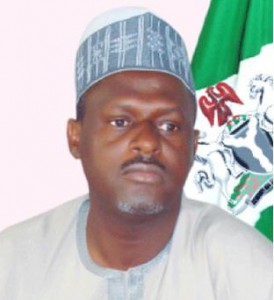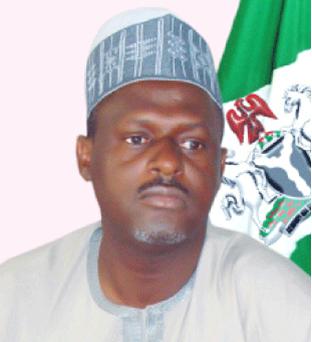…Commends Auto Assemblers for Quick Response

By: ROTIMI ASHER
[dropcap]T[/dropcap]o further implementation of its Auto Policy, the Federal Government of Nigeria, through National Automotive Council, has developed local content strategy and inaugurated a committee for its implementation. The Director General of the National Automotive Council (NAC), Engineer Aminu Jalal, made the disclosure in Lagos recently during inauguration of Volkswagen plant.
According to him, the local content implementation committee comprises of experts from the assembly plants, local content manufacturers, the manufacturers Association of Nigeria, relevant government agencies and International organizations like UNIDO.
Engineer Jalal also commended the nation’s automobile assemblers for their quick and positive response to the Auto Policy. Making specific reference to Nissan, Hyundai, Kia, Peugeot and Renault vehicles, all of which are now assembled locally, Jalal said their response to the policy exceeded federal government’s expectation.
“Toyota, Ford and many others are concluding their feasibility studies with a view to setting up assembly operations’’, he pointed out, stressing that NAC was so pleased with the progress made so far in auto assembly operation that it shifted its attention to development of local content.
The NAC boss described Nissan’s announcement to commencement vehicle assembly in Nigeria just a week after the approval of the policy as a landmark.
“This was due to the efforts and commitment of Stallions Motors, of which we are grateful”, he recalled, adding that the Council “will work with Stallion to ensure full implementation of the policy so that multi-brand assembler would move on to Completely Knockdown (CKD) operations with increasing local content”.
Speaking further, Engineer Jalal, who described the automobile industry as a great tool for industrial development and a big employer of labor in any nation, recalled that 40 countries produced almost 90 million vehicles last year (2014), valued at over us$2 trillion.
 “The industrial value added to the GDP is 7% for South Africa and some European countries, over 10% for Japan and over 5% for the USA”, he explained. “The importance of this industry is highlighted by the fact that Philippine is the latest country to develop an automotive policy this year.
“The industrial value added to the GDP is 7% for South Africa and some European countries, over 10% for Japan and over 5% for the USA”, he explained. “The importance of this industry is highlighted by the fact that Philippine is the latest country to develop an automotive policy this year.
“Many countries with a successful automotive industry started with an automotive policy like Japan in( 1910),Brazil in (1952),Thailand in (1971),Indonesia in (1969) and South Africa in (1961).These policies are long-term in nature and subject to frequent reviews.
“Our own policy too is for an initial period of 10 years, after which it will be subject to a minor review after 5 years. Our policy, therefore needs the continued support of government to enable it achieve its objectives”
The Nigeria automotive policy was launched as part of the Nigerian Industrial Revolution Plan (NIRP).The NIRP aims to increase the contribution to Nigeria GDP by the manufacturing sector from 6.8% in 2014 to above 13% by 2017.The main objective of the policy is to bring back automotive assembly and to develop local content. This will enable the country to create employment, acquire technology for industrialization and reduce pressure on the country’s balance of payment position resulting from escalating vehicle import bill.




